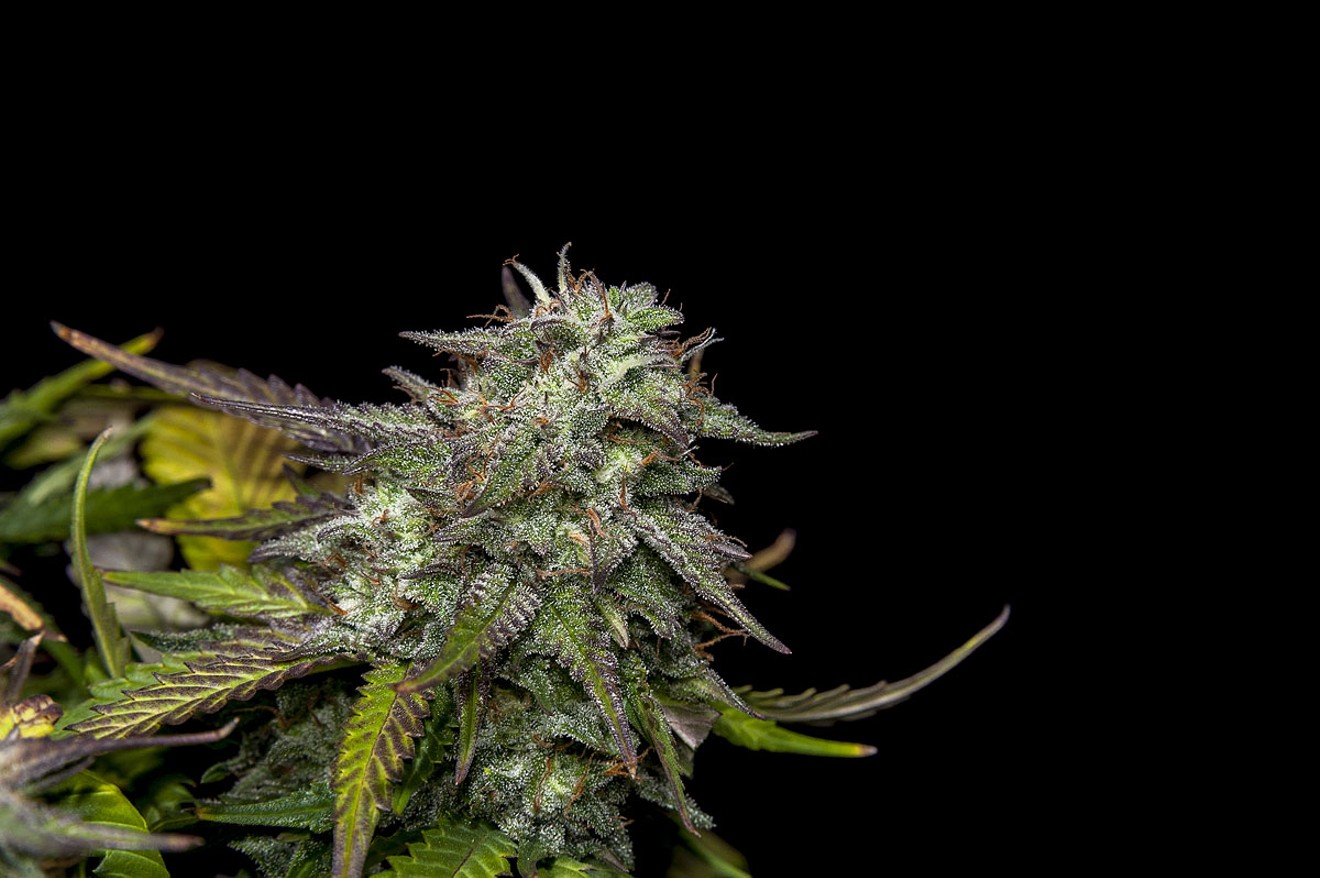The Arizona Supreme Court will review the legality of medical-marijuana concentrates in the state, the court decided on Tuesday, giving a boost of hope to patients and industry advocates.
"It's definitely good news," said Jared Keenan, a criminal justice staff attorney with the American Civil Liberties Union. "We're hoping they overturn the opinion of the lower court, obviously, and protect patients."
The medical-marijuana community has been on edge over the issue since June, when the state court of appeals ruled 2-1 that THC-bearing resin from marijuana plants, and the products that contain it, were not protected by the 2010 Arizona Medical Marijuana Act.
The ruling stemmed from a 2016 conviction of Rodney Jones in Yavapai County, where marijuana policy is led by County Attorney Sheila Polk, a notorious Reefer Madness proponent. Jones served two years in prison after being convicted for a small amount of hashish, despite his valid medical-marijuana status. He later appealed, leading to the June appeals-court decision.
Since then, Jones filed a petition for review to the state high court, and multiple advocates have filed amicus briefs in favor of Jones and his stance that extracts are covered under the state law. In a surprise move just before November's election, Arizona Attorney General Mark Brnovich — who faced a re-election campaign — reversed course and decided not to oppose the Supreme Court's review of the case. Polk, however, soon took his place on the anti-extracts side, and filed in opposition to the review.
Had the state Supreme Court decided not to review the case and leave the appeals-court decision as settled law, some of the most popular products in dispensaries, like vape cartridges, edibles, and shatter, would have been removed from shelves, and patients possessing such products would face felony prosecution.
That dystopian future could still come to pass, if the seven-member Supreme Court agrees with the majority on the court of appeals and decides to make concentrates illegal. The legality of resin extracts has been debated since voters approved the law in 2010. Although the law states that legal medical marijuana would include "any preparation or mixture" of the cannabis plant, the state's archaic drug law defines resin separately from marijuana, calling it a "narcotic" and assigning stricter penalties for its possession. Some county attorneys and judges believe that because the 2010 law doesn't specifically mention the "narcotic" cannabis resin, people can still be prosecuted for it.
Maricopa County Superior Court Judge Katherine Cooper ruled in 2014 that the medical-marijuana law covered extracts, but her ruling wasn't binding on the whole state. Now, the state's highest court will decide the issue. Oral arguments will likely come by March, Keenan said.
In the meantime, the Supreme Court has instructed the parties to file supplemental briefs in the case on or before January 28. Amicus briefs, which anyone can send, are due by February 11, with responses due 10 days later.
Better not wait to exhale: It'll be a few months before the court releases a decision.
Below: the petition for review and amicus briefs in the Rodney Jones case:
[
{
"name": "Air - MediumRectangle - Inline Content - Mobile Display Size",
"component": "18478561",
"insertPoint": "2",
"requiredCountToDisplay": "2"
},{
"name": "Editor Picks",
"component": "16759093",
"insertPoint": "4",
"requiredCountToDisplay": "1"
},{
"name": "Inline Links",
"component": "17980324",
"insertPoint": "8th",
"startingPoint": 8,
"requiredCountToDisplay": "7",
"maxInsertions": 25
},{
"name": "Air - MediumRectangle - Combo - Inline Content",
"component": "16759092",
"insertPoint": "8th",
"startingPoint": 8,
"requiredCountToDisplay": "7",
"maxInsertions": 25
},{
"name": "Inline Links",
"component": "17980324",
"insertPoint": "8th",
"startingPoint": 12,
"requiredCountToDisplay": "11",
"maxInsertions": 24
},{
"name": "Air - Leaderboard Tower - Combo - Inline Content",
"component": "16759094",
"insertPoint": "8th",
"startingPoint": 12,
"requiredCountToDisplay": "11",
"maxInsertions": 24
}
]












